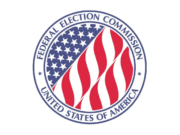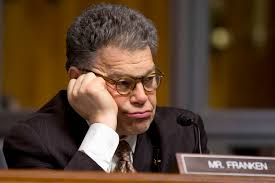Most Americans know April 15th as Tax Day, but campaign finance observers also know it as the date when presidential candidates file their campaign’s first-quarter fundraising report. Traditionally, these filings have had a significant impact on media coverage and public perception of candidates. Those who demonstrated fundraising prowess early on were presumed to be front-runners with the support of their party’s leaders. Candidates who struggled were considered longshots for the White House.
However, April 15th isn’t quite what it used to be, according to The New York Times’ Nate Cohn in an interesting post at “The Upshot.” Cohn writes, “In 2007, [April 15th] was when we learned that Barack Obama could match the supposedly inevitable Hillary Rodham Clinton in fund-raising, and that John McCain wasn’t a real front-runner for the Republican nomination (although he managed to claw back to win it), despite his second-place G.O.P. showing in 2000. But this year, April 15 has come and gone without much news at all.”
The reason why is simple: recent Supreme Court decisions freeing independent spending changed the game by wresting control of the primary process away from the political parties. Now that groups and individuals are free to fundraise and speak independently about candidates through Super PACs, which aren’t subject to the burdensome contribution caps that candidates must abide by, winning the favor of a select few party elites has become less important. Per Cohn, “Along with Internet fund-raising, super PACs are helping to form an alternative campaign finance model that is eroding party control over the primary process.”
Thank goodness. If elections are about voters, then the support of party elites should not be a prerequisite for candidacy. Anyone whose ideas are good enough to win the support of their fellow citizens should have the opportunity to run a competitive campaign. Political parties are certainly important institutions in our democracy, but they shouldn’t have a monopoly on who gets to speak.
Cohn points to Texas Senator Ted Cruz as an example of someone who may not have survived under the old system, saying there is “no precedent for the fund-raising success of Mr. Cruz, a candidate with virtually no support from party elites.” Whether Cruz will gather enough supporters to win the Republican nomination remains to be seen, but he should be allowed to try. If he falls short, only he and his supporters will have paid a price for supporting a failed campaign. If, on the other hand, certain ideas and candidates are excluded from the public debate by unnecessary campaign finance restrictions, we all lose.
Looking at Cruz, Kentucky Senator Rand Paul, New Jersey Governor Chris Christie, and former Arkansas Governor Mike Huckabee, Cohn sees a “star candidate” for each faction of the Republican Party. These candidates, he says, all have “big flaws” that make party leaders wary, but also have “natural bases of support and considerable political talent” that could propel them to victory.
In short, Cohn sees a race with a diverse range of candidates who each appeal to voters in a different way. It’s a race that couldn’t have existed under the old, party-dominated system. “Fifteen years ago, candidates such as these would have had virtually no shot of winning the nomination. It took broad support from party donors to build a large war chest – there was no way around it. Today, all it takes is Internet star power or the right wealthy benefactors. These candidates still don’t have a great shot at winning, but they can’t be completely ruled out anymore,” he notes.
If you needed more evidence that Citizens United and SpeechNow have created a more diverse, more competitive political process, now you have it.














